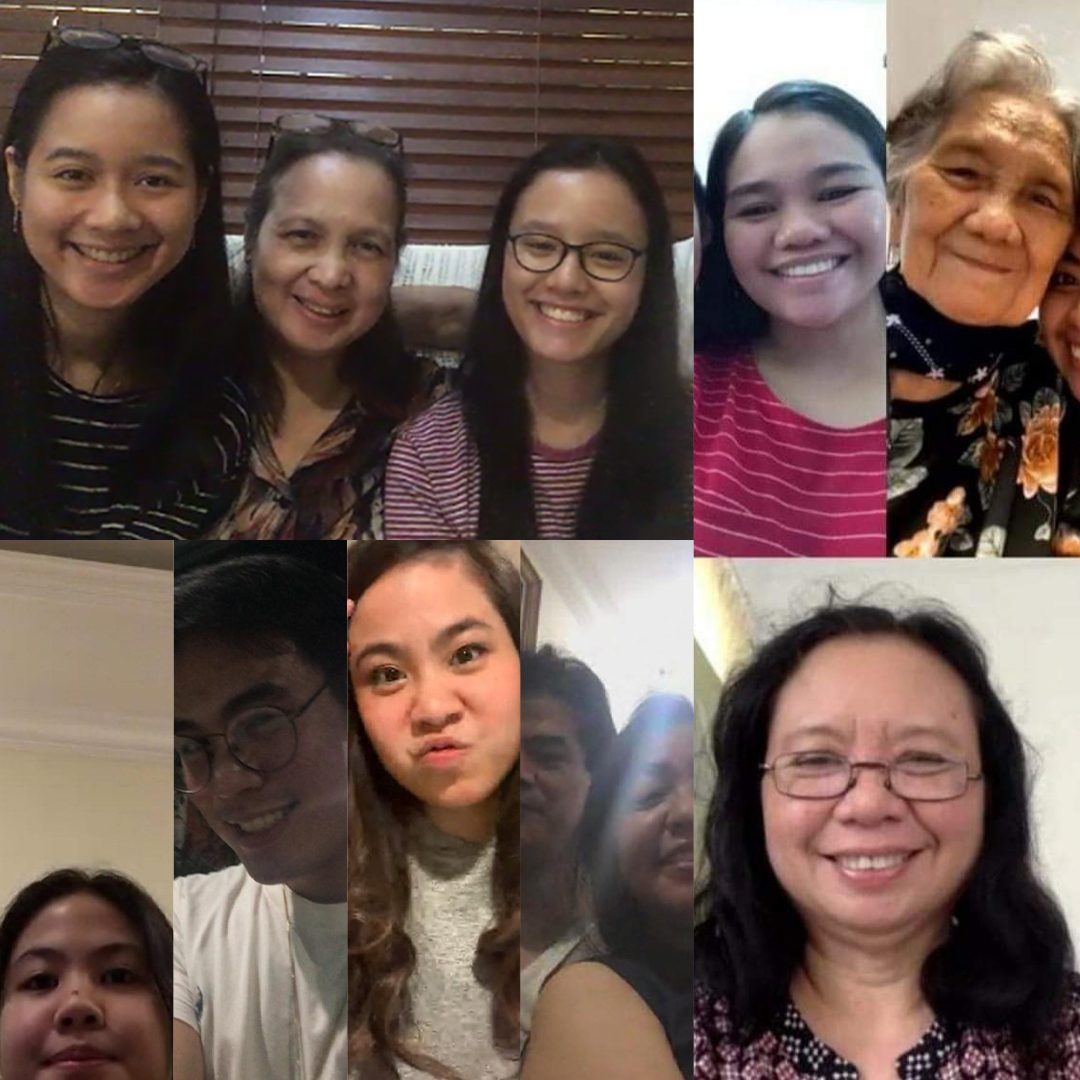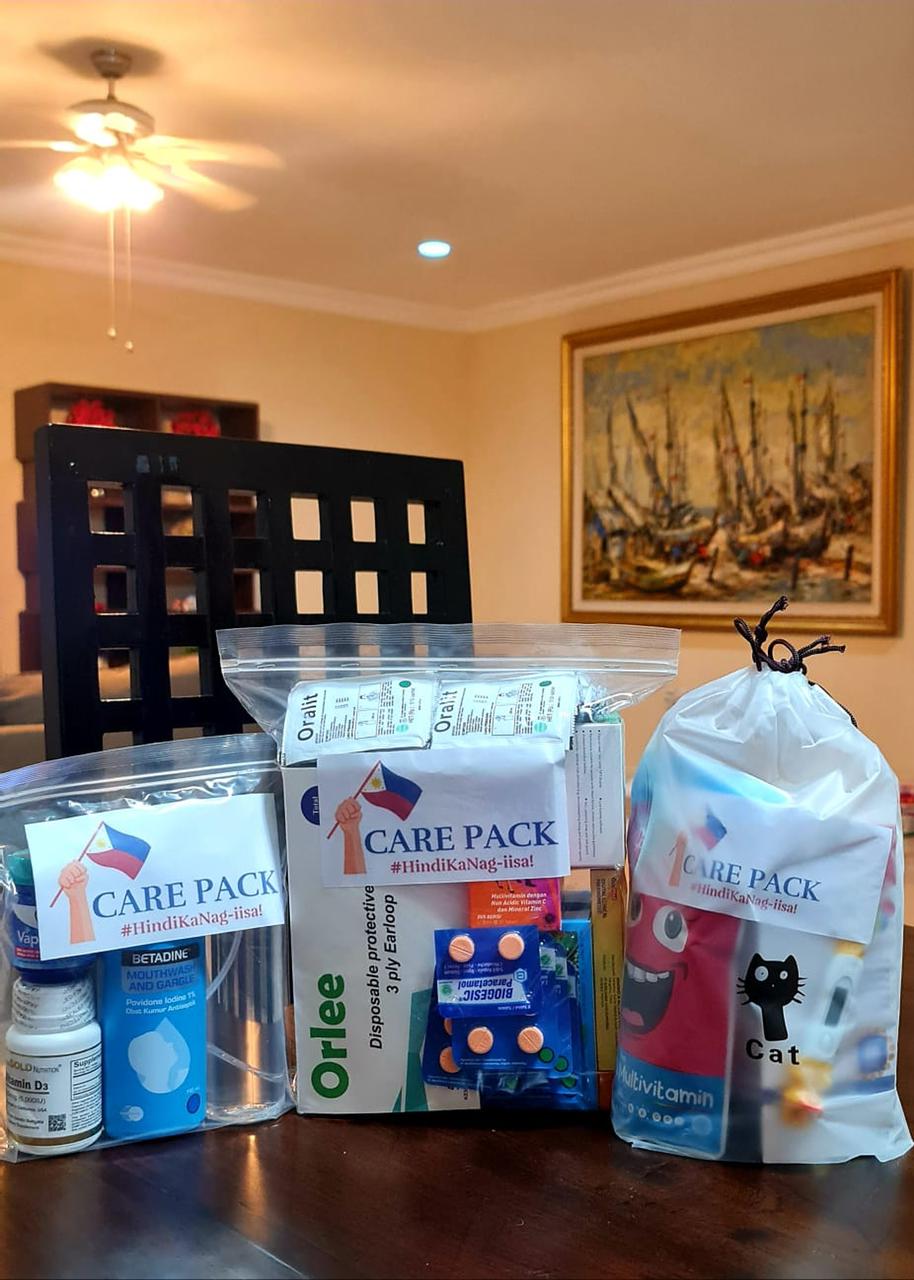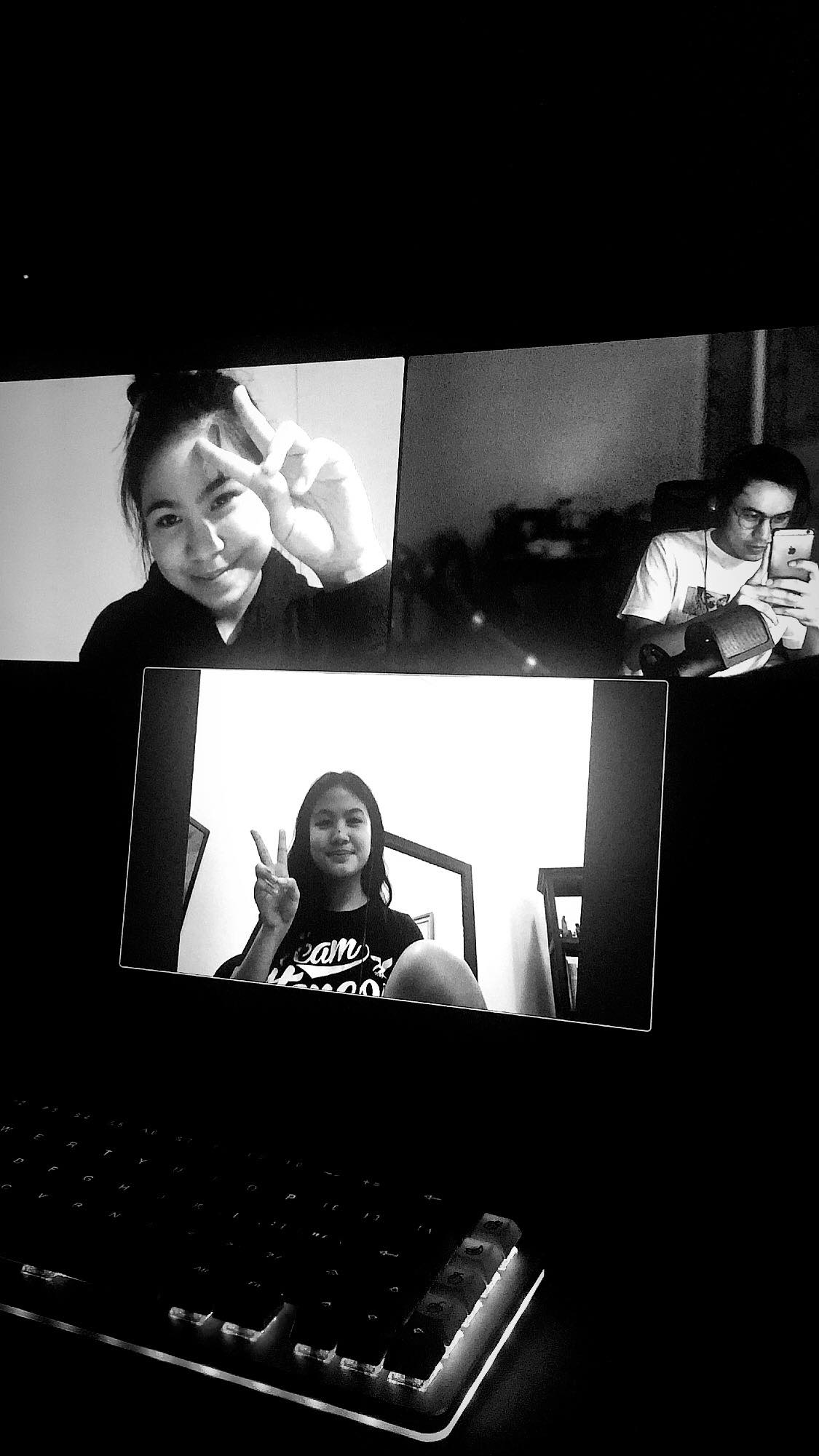SUMMARY
This is AI generated summarization, which may have errors. For context, always refer to the full article.

Still reeling from the devastation that COVID-19 wreaked in India, the world’s eyes are now on Indonesia, as the archipelago emerged as the new coronavirus epicenter in Asia in July 2021.
The country averaged 43,790 new daily COVID-19 cases in the past week, while more than 79,000 have died due to the disease.
There are 5,000 to 8,000 Filipinos in Indonesia, according to the Philippine embassy’s estimate. Rappler checked in with a community leader, two families, and a teacher whose whole family was back home.
Their response to worries of their countrymen at home? “We’re okay. We’re taking care of each other.”
Not without fears and anxieties, the Filipino community banded together in this time of crisis to keep each other supported and healthy. They found strength in communication with their loved ones far away, and their faith in God.
The community and the embassy have helped at least 19 Filipinos in Indonesia who contracted the virus. Numbers from the embassy show at least 10 Filipinos have died due to COVID-19 – five of whom just in July.
Sacrifices for Mama
Since Indonesia began locking down in March 2020, the Indonesian-Filipino Roosmin family never grew complacent.
Joy Roosmin, mother of three young women, has been extra mindful about her health since her kidney transplant in 2009. So when restrictions began to be implemented, it first felt “all the same,” until she noticed the lifestyle changes her daughters and Indonesian husband Dinky began making.
“Even if the malls are open, they cannot go there because they’re thinking that they might get something, and I might get infected. I love my family for all their sacrifices,” Joy said, with two daughters sitting on either side of her while speaking to Rappler via a video call.
The new COVID-19 surge in Indonesia began making headlines and roused fear in the family again. “It’s really scary, especially now, because it’s everywhere,” said Patricia, Joy’s middle child.
Dinky goes out and does the family’s errands and grocery runs, but could not greet his family with the usual kiss on the forehead when he gets home.
According to his wife, Dinky “cannot live” without bread. To lessen his trips outside, Joy learned how to bake pandesal.
The couple prays together with their two daughters – special education tutor Patricia, and grade 10 student Marielle. But they still feel incomplete, as their eldest, Nicole, is now married and living with her husband in Australia.
“I wish [Australia] and Indonesia are like Singapore and Malaysia where you can go by land,” said Joy.
The last time the whole family was together was in February 2020 – Nicole’s wedding in Jakarta. A week later, Indonesia began locking down.
Blocked by travel ban
Also coping with prolonged separation is elementary school teacher Olivia Villamayor, 58, who has been on her own in Jakarta for 14 years. Before the pandemic, she had not made plans to go home for good yet, but watching her family amid the lockdowns changed her mind.
Not long after the Philippines and Indonesia began imposing lockdowns, Olivia became a grandmother. She has yet to meet her first grandson in the Philippines.
Olivia used to be able to visit her husband and three kids at least twice a year, pre-pandemic. Now, they settle with daily video calls, which lessens her worries. What pained her, however, was watching her aging mother, who recently turned 89.
“I have this fear – what if something happens to her? What will I do? Will I be able to go home? Or, if I go home, will I be able to attend [to her]?” said Olivia.
“When we have video calls, she would sometimes forget who I am. That’s difficult. All the sisters in the community [here] know this, because that is the thing that is really bothering me,” she added.
Olivia badly wanted to visit her mother, but is barred by the travel ban the Philippines has imposed on Indonesia. While overseas Filipino workers may return home on government-initiated repatriations, Olivia worries about not being able to go back to Jakarta.
She wants to finish one more school year before going home for good.
Beyond her worries about her mother, Olivia has been able to keep safe and productive amid the lockdown. She’s happy she has learned how to cook for herself, and has been able to keep up with distance learning technology despite describing herself as “not technical.”
Bayanihan, as always
As the new surge came and Filipinos in Indonesia started getting hospitalized, the Filipino community raised funds and shared aid with each other.
According to Mark Castro, a community leader, the Philippine embassy facilitated the activities. In a joint effort, the embassy and the community put together care packages and financial assistance, with the coronavirus-infected Filipinos as priority.
Castro said they were able to raise a little over $5,000 (P250,000), as of Friday, July 23.

Five thousand dollars is no joke. Is the community really that active? Castro said yes, and that he felt the thousands in the community helping out. There were local leaders coordinating from different parts of the country, like in Surabaya, Bandung, Aceh, and Bali.
The closeness of the community was a product of years of bayanihan in times of need. Before the pandemic, they raised P1.2 million for the rehabilitation of Marawi after the 2017 siege. And with the University of the Philippines Alumni Association in Indonesia taking the lead, they collected P250,000 to support the UP-Philippine General Hospital.
They raised P1 million for the Cagayan Valley floods in November 2020.
When the fresh surge of COVID-19 cases started, coordination just fell into place – simply because they were already so used to helping each other.
“Whenever we hear someone who either passed away or is in need of financial assistance in the province, we immediately shell out whatever we can to send money to that person,” said Castro.
The Manibog family is one of those active families. Fred and Beth Manibog live with their two daughters Ariane and Nicole. Like the Roosmins, they are separated from their eldest, Gabe. But distance has not stopped the family from encouraging one another to help in ways that they can.
Beth and Nicole have sewn face masks and face shields for health workers in Indonesian hospitals. Fred, who is meant to be retired, channels his energy into working finances for a colleague’s contracting business and allocating a portion of his wages to helping the community. Beth is the family’s “accountant,” and deals with the family’s budget for helping and where it should go.
“It’s a blessing to be able to share – instead of us getting sick, we’re glad to share. It’s a way of giving back to the Lord. The more we share, the more we’re blessed,” said Beth, reflecting on how none of the family has gotten sick with the coronavirus.
While the parents and two girls help the community in Indonesia, they encouraged Gabe to help their relative in the Philippines who was badly hit by COVID-19.
Gabe, who works in Manila, worries about his family, especially amid the recent surge. “I guess the hardest part of it all is not being able to see my family in person for such a long time. Sure, we have regular video calls to check on each other, but it just hasn’t been the same since COVID exploded in both the countries where we live.”
But as the rest of Gabe’s family has been vaccinated, he says he’s no longer as worried as he was in the coronavirus’ initial outbreak.
Technology has kept the family close, especially as they pray together daily.

“I believe that we’ve always been a resilient bunch – it’s only a matter of time before we can reunite as a complete unit again – and I’m eagerly looking forward to it. In the meantime, we’ll just have to remain vigilant, safe, and patient until that day comes,” said Gabe.
‘Thank you, we’re okay’
For now, members of the community Castro handles have not expressed interest in leaving the country to go home to the Philippines. They are understanding of the travel ban, which they think is necessary to keep everyone safe.
Fred believes that both the Philippine and Indonesian governments are taking good care of all communities, regardless of nationality. Mothers Beth and Joy thanked the Filipinos at home for their prayers.
Even teacher Olivia feels strong, even if she is alone: “The situation is really scary, but, don’t worry, because we Filipinos are careful. We have a community of people who have strong faith and support each other. We pray for each other, and we give encouraging words. That is the thing that keeps me going.”
“They are my family in Indonesia,” Olivia added. – Rappler.com
Add a comment
How does this make you feel?


![[Time Trowel] Evolution and the sneakiness of COVID](https://www.rappler.com/tachyon/2024/02/tl-evolution-covid.jpg?resize=257%2C257&crop=455px%2C0px%2C1080px%2C1080px)







There are no comments yet. Add your comment to start the conversation.